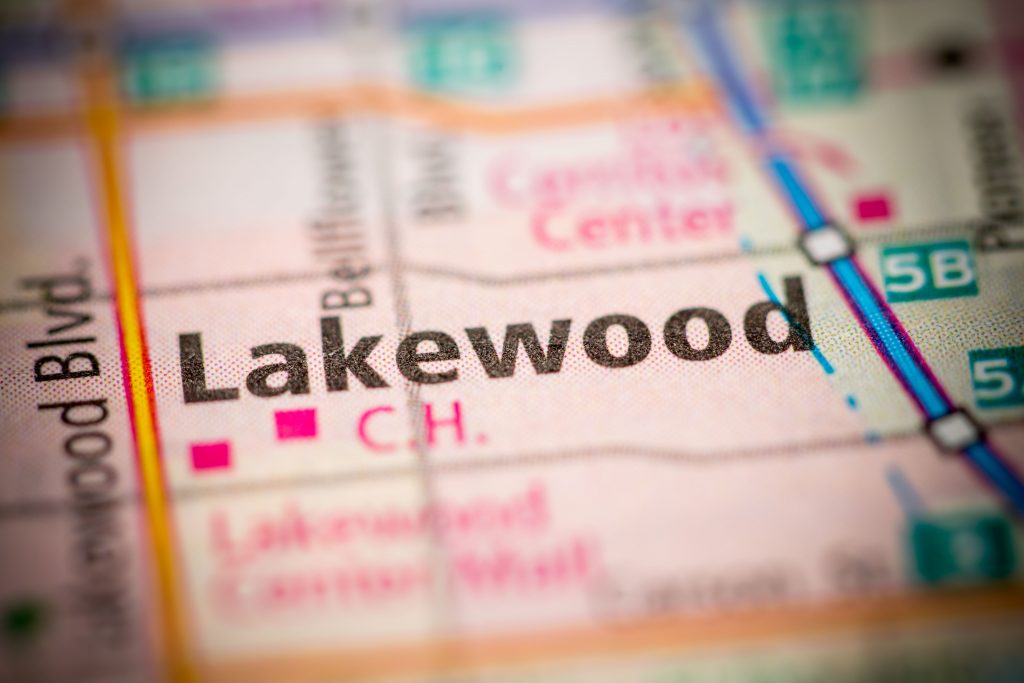“Surely the Lord is in this place and I did not know it.”
— Genesis 28:16
D.J. Waldie, born in 1948, was raised in the Los Angeles suburb of Lakewood, a planned suburb of 17,000 homes incorporated in 1954 and the first of its kind in the West.
He still lives in the same 957-square-foot house his parents bought in 1946. For decades, he worked at Lakewood City Hall, most recently as deputy city manager.
And in 1996, he established himself as one of the finest writers our city has known, with the publication of “Holy Land: A Suburban Memoir.” The book is divided into 316 sections, or “fragments,” some as short, for example, as “The grid is the plan above the earth. It is a compass of possibilities.”
Waldie does not drive and has said that he ordered his writing around the reflections that came to him during his 25-minute walk to and from work each day.
On one level, “Holy Land” is history, geography and sociology. We learn of the three Jewish developers who envisioned and built Lakewood, the 30-man construction crews, the concrete-mixing trucks that waited in a mile-long line to erect as many as 500 homes a week, the eucalyptus and red crape myrtles planted at precise intervals along the identical streets and the post-World War II home-buying frenzy.
On another level, “Holy Land” is a memoir “of a place more than an account of a life,” Waldie has said.
He is not the first to observe the desperation, dysfunction and tragedy spawned beneath our sunny Southern California skies. As a resident of Lakewood, he describes the woman who calmly pours gasoline around the foundation of her house, then sets it on fire; the boy who dies when the fort he made of scrap lumber and dirt collapses; and the man who climbs to the top of the local transmission tower and is crucified, high above Lakewood, on the live wires.
But while other, more “apocalyptic” Southern California writers tend to view such bumblers with ironic disdain, Waldie conveys compassion. This is you, he seems to say. This is me.
One Aug. 15, for example, the feast of the Assumption, Waldie listened from his bedroom as his father walked down the hall to take his 11 p.m. shower. The water never started. The paramedics came soon after.
The book shifts between the first and third person. Section 60 reads:
“He could not choose to deny his father, even less his father’s beliefs. These have become as material to him as the stucco-over-chicken-wire from which these homes are made.
“It is not a question of denying the city in which he lives, though he doubts his father cared much for living in it. He doubts if his father cared for much of anything you would find familiar at all.
“‘I am still here,’ he often tells himself. This is how he has resurrected his father’s obligations, which he sometimes mistakes for his father’s faith.
“‘I will never go away,’ he once told the girl he loved, because it suited her desperation and this notion of the absurd.
“‘Loving Christ badly was finally the best he could do.’”
Loving Christ badly is finally the best any of us can do. That Waldie discovered that fact during his time in Lakewood makes “Holy Land,” to my mind, very much a memoir of a life after all. It is a life of careful watching and of careful listening, firmly grounded in the virtues and sacraments of the church in which he was raised.
The author of several other books, Waldie writes and speaks widely on the culture of Los Angeles. He has taught university-level comparative literature and been lauded for his translations of the French symbolist poet Stéphane Mallarmé.
But far from fleeing “the Levittown” of the West in horror, he somehow grasped that this seemingly unremarkable, seemingly unpromising housing tract was “his” place to put down roots, to bear fruit, to serve.
That the streets of Lakewood are laid out at precise right angles — “The streets do not curve or offer vistas” — didn’t repulse him, but rather seemed to have inspired a sense of solidarity for our doomed human desire to keep suffering at bay by imposing order.
That Waldie differed from his father, one gathers, in aesthetics, religious sensibility, perhaps politics, he seems to say, is just as it should be. That he brushes his teeth each morning in the room where his father’s corpse once lay is just and right. That he may die in that same room himself one day — so be it.
In a sense Waldie married his house, his city. He stayed faithful to the crape myrtles and the mourning doves.
We are nailed to the places and people we love. For Christ, that was Jerusalem — and us. Which is why Lent is the perfect season to read “Holy Land.”
Waldie’s masterpiece ends with the sob in the throat for the home we never quite find here on earth: a Good Friday service at his neighborhood parish and some lines from the traditional hymn “Pange Lingua”:
Sweet the wood,
Sweet the nails,
Sweet the weight you bear.
Heather King is a blogger, speaker and the author of several books.

